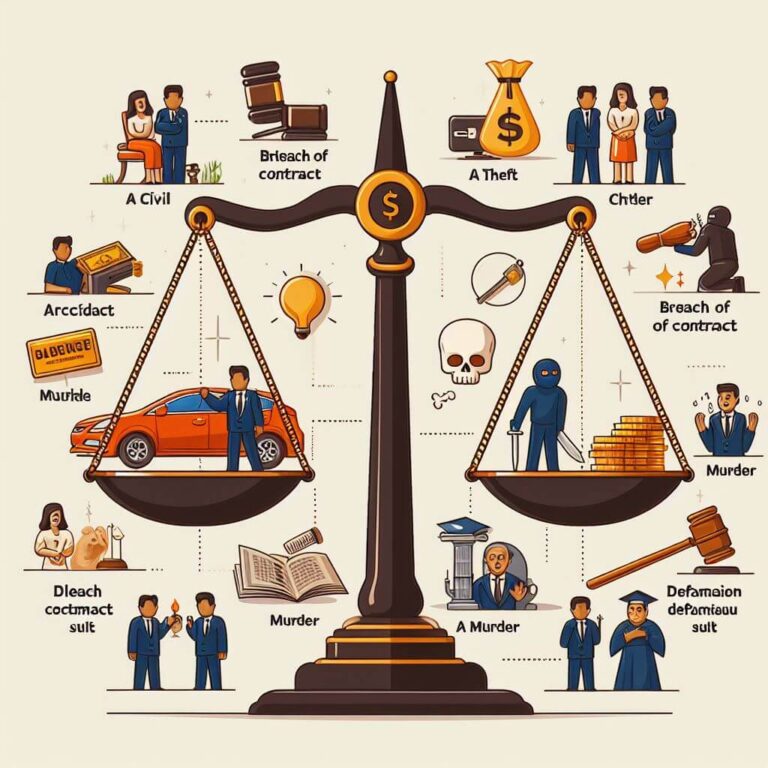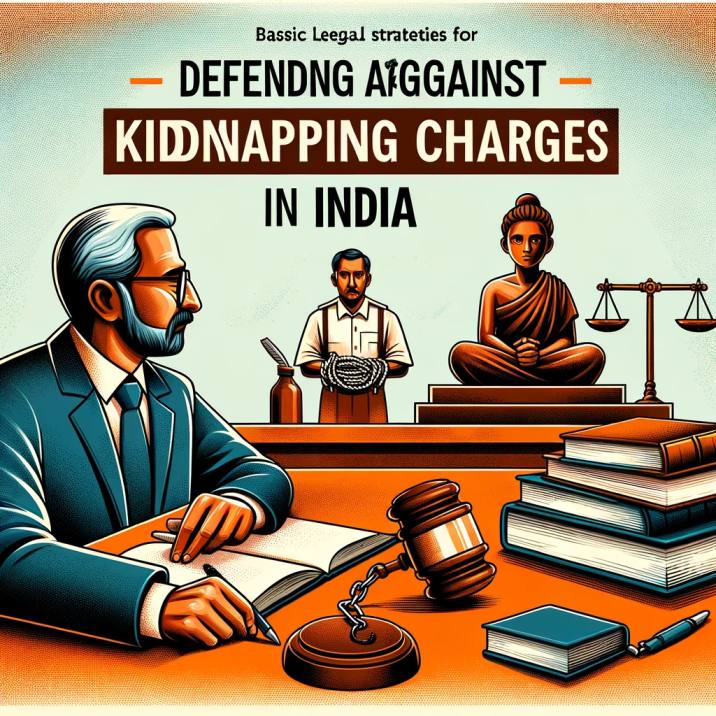In this article we have explained is Legal advice is required for a criminal charge?
Introduction to Legal Representation in Criminal Cases
The Importance of Legal Advice
Facing a criminal charge can be a daunting and life-altering experience. The complexity of legal procedures, coupled with the potential consequences of a conviction, makes obtaining legal advice not just beneficial, but essential. This article explores why legal counsel is crucial when dealing with criminal charges.
Understanding Criminal Charges
The Basics of Criminal Law
Criminal law deals with behaviors that are considered harmful or dangerous to the public and therefore, punishable by law. This includes a range of offenses from minor misdemeanors to serious felonies. Understanding the nature of the charges against you is the first step in your defense strategy.
Types of Criminal Charges
- Misdemeanors: Less serious offenses that usually result in fines or short jail terms.
- Felonies: More serious crimes that can lead to long-term imprisonment.
Legal Advice for Criminal Charges: Navigating the Legal System
Why You Need Legal Representation
Legal Expertise and Guidance
A criminal defense lawyer provides expertise in navigating the legal system, ensuring your rights are protected throughout the legal process. They offer guidance on the complexities of criminal law, help interpret legal jargon, and provide a clear understanding of the charges and potential consequences.
Building a Defense Strategy
Analyzing Evidence and Identifying Weaknesses in the Prosecution’s Case
Skilled legal professionals meticulously analyze the evidence against you, identifying weaknesses in the prosecution’s case and building a robust defense strategy. They also ensure that any evidence obtained unlawfully is not used against you.
Navigating the Legal Process
Court Proceedings and Plea Bargaining
Understanding Your Options
Navigating through court proceedings can be overwhelming. A criminal defense attorney will explain your options, whether it’s going to trial or considering a plea bargain. They can negotiate with prosecutors to potentially reduce charges or penalties.
The Trial Process
Representation in Court
If your case goes to trial, having a knowledgeable attorney is invaluable. They will represent you in court, argue on your behalf, and aim to achieve the best possible outcome.
The Consequences of Self-Representation
Risks of Not Having Legal Advice
Potential Missteps and Harsher Outcomes
Choosing to represent yourself, especially in criminal cases, can lead to significant missteps due to a lack of legal knowledge. This might result in harsher sentences or overlooked defense opportunities.
Read :- What does criminal defense lawyer do
Conclusion
Legal Advice: An Essential Aspect of Criminal Defense
In conclusion, legal advice is not just recommended but essential when facing criminal charges. An experienced criminal defense attorney can mean the difference between a favorable outcome and a potentially life-changing conviction. Remember, in the realm of criminal law, expert guidance is not a luxury, but a necessity for navigating the complex and challenging legal system.
Legal advice is required for a criminal charge?:- FAQ (FREQUENTLY ASKED QUESTIONS)
- Is legal advice necessary for all criminal charges?
Yes, legal advice is strongly recommended for any criminal charge due to the complexities of the law and potential consequences. - What does a criminal defense lawyer do?
They provide legal representation, advise on your rights, develop a defense strategy, negotiate with prosecutors, and represent you in court. - Can I represent myself in a criminal case?
While it’s legally allowed, self-representation is not advised due to the complexities of criminal law and legal procedures. - What’s the difference between a public defender and a private attorney?
A public defender is appointed by the court for those who can’t afford a private attorney, while a private attorney is hired and paid by the defendant. - How do I choose a good criminal defense lawyer?
Look for experience in criminal law, a successful track record, good communication skills, and someone who makes you feel comfortable. - What should I do if I can’t afford a lawyer?
If you can’t afford a lawyer, you may be eligible for a court-appointed public defender. - Can a lawyer get my charges dropped or reduced?
Depending on the case’s specifics, a skilled lawyer might negotiate to have charges dropped or reduced. - What happens if I plead guilty without a lawyer?
Pleading guilty without a lawyer can lead to unfavorable outcomes without fully understanding your rights or exploring all defense options. - How do I know if my rights were violated during an arrest?
A criminal defense lawyer can review your case to determine if there were any rights violations. - What’s the role of a lawyer in a plea bargain?
A lawyer negotiates with prosecutors to potentially reduce your charges or sentencing. - Can a lawyer represent me during police questioning?
Yes, it’s highly recommended to have legal representation during any police questioning. - Do I need a lawyer for a misdemeanor?
Yes, even for misdemeanors, as they can still result in fines, jail time, and a criminal record. - What if I am innocent of the charges?
Innocent or not, legal representation is vital to navigate the legal system and prove your innocence. - How long does a criminal case take?
The duration varies based on case complexity, legal procedures, and court schedules. - Can a lawyer help with bail?
Yes, lawyers often assist in setting or reducing bail amounts. - What is the cost of hiring a criminal defense lawyer?
Costs vary based on the case complexity, lawyer’s experience, and geographical location. - What if I change my mind about my plea?
With a lawyer’s advice, you might be able to change your plea, but this depends on the court’s rules and the case’s stage. - Can a lawyer help if I’m falsely accused?
Absolutely. They will gather evidence, build a defense, and work to prove your innocence. - How do I prepare for my first meeting with a defense lawyer?
Gather all relevant documents, write down a timeline of events, and list any questions you have. - Are conversations with my lawyer confidential?
Yes, attorney-client privilege ensures your conversations are confidential. - Can a lawyer help with expunging a criminal record?
Many lawyers specialize in expunging or sealing criminal records, depending on the jurisdiction and case specifics. - What if I’m not satisfied with my lawyer?
You have the right to change your lawyer if you’re unsatisfied with their representation. - How does a lawyer challenge evidence?
A lawyer can challenge the admissibility or credibility of evidence through legal arguments and motions. - What should I expect during a criminal trial?
Expect opening statements, witness testimonies, cross-examinations, closing arguments, and a verdict. - Can I appeal a conviction?
Yes, with a lawyer’s help, you can appeal a conviction if there are grounds for appeal. - What if new evidence is found after my trial?
A lawyer can help file for a retrial or appeal based on new evidence. - How often will I meet with my lawyer during a case?
This varies based on the case’s complexity and stages but expect regular updates and strategy discussions. - Can a lawyer help reduce my sentence?
Yes, through plea bargaining or presenting mitigating factors during sentencing. - What is a defense strategy?
It’s a plan developed by your lawyer to defend against the charges, based on evidence and legal principles. - How can I help my lawyer with my defense?
Provide all relevant information, follow their advice, and communicate openly about any concerns or questions.
Sources:-
1. A Guide on Limitations of Criminal Lawyers
















